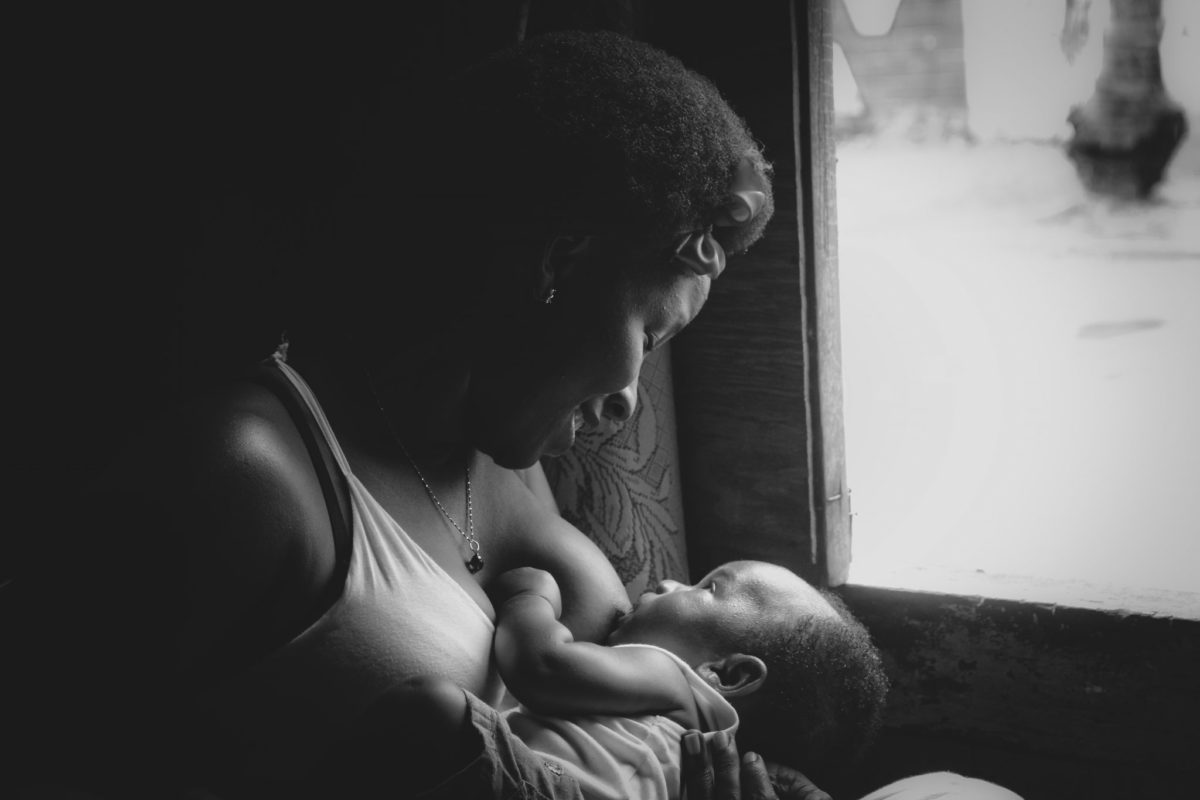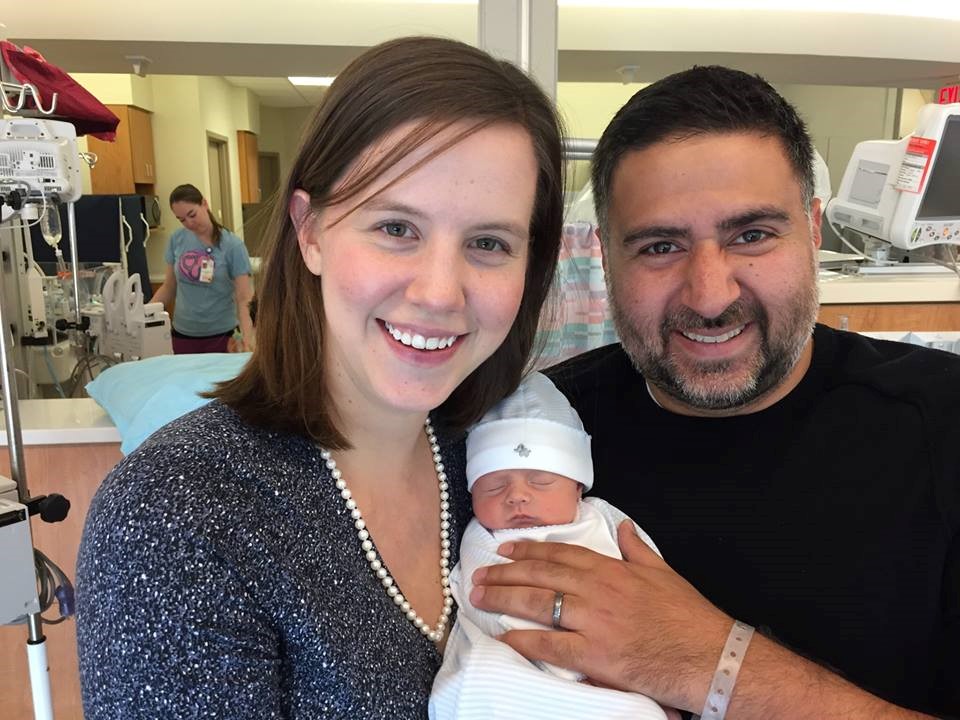Losing a child is a tragedy. As the Internet buzzed recently with the story of Jillian Johnson and the death of her son Landon, our hearts ached. Every mother, every human, feels her pain. Often, the best you can glean from any tragedy are important lessons learned. While it may seem easiest to blame breastfeeding or the Baby Friendly Hospital Initiative, as the click-generating headlines and story promoters simplistically suggest, that would not give the issue proper justice. If the true end goal is to ensure that no mother has a similar experience to what the Johnson family endured, then it is important to consider all the factors that contributed to that tragic loss and how we respond to that loss. We owe baby Landon that much.
Most importantly, we must not allow the media or any organization’s desire to sensationalize a rare occurrence turn into a dangerous, broad-based message that exclusive breastfeeding kills. That is categorically untrue and extremely irresponsible. In fact, decades of global research proves that exclusive breastfeeding consistently saves lives. The World Health Organization reports that over 800,000 babies could be saved worldwide by increasing breastfeeding rates, preventing 13% of all deaths under age five. The Baby Friendly Hospital initiative served over 788,000 births in 2016 alone, providing evidence-based care with positive outcomes. (Note: The Johnson family has not revealed the name of the hospital so it cannot be confirmed that it was indeed a BFHI certified hospital).
Take for example, seat belts. We know seat belts save lives, by and large, yet we also know that people can still die in a car accident while wearing a seat belt. But it would be short sighted to demonize seat belts in general for the specific incidences where unique circumstances meant a seat belt failed to prevent death. We would not condemn all seat belt use, attack seat belt users or criticize all public health campaigns designed to encourage their use, would we?
Yes, Jillian’s story as a rare occurrence must be told. These stories shock us to see the gaps and do better. But we can’t just stand by while sensational headlines and questionable motives trap us into an equally dangerous matrix of fear, divisiveness and emotional manipulation that foolishly paints a broad stroke over an acute complication when decades of scientific evidence proves that breastfeeding—when properly supported—saves countless babies and improves infant and maternal health.
Now for two important acknowledgments: First, we must acknowledge that not all mothers can successfully exclusively breastfeed. While the percent of women who cannot breastfeed due to biological factors is rather small, lactation is impacted by psychological factors such as anxiety and stress and these are mounting in our society leading to increases in incidences of insufficient milk supply.
Second, we have to acknowledge that most physicians simply do not know enough about lactation medicine and we have to start facilitating and demanding that they receive more evidence-based education about a biological norm. Again, we don’t know for sure that Landon was deliv-ered at a certified Baby Friendly Hospital (although that hasn’t stopped the story promoters from blaming BFHI). But perhaps that is more to the point—that all families, regardless of where they deliver deserve physicians and nurses, who are properly trained and certified in lactation science, so they can effectively educate parents to manage breastfeeding, particularly in the early days and weeks after birth. This includes avoiding “one size fits all” breastfeeding advice and being sure to educate parents on the warning signs of a sick infant, beyond counting diapers. That knowledge also includes understanding medical conditions that can impact milk supply including having a C-section, as Jillian did, and certain health conditions such as the hormonal disorder that Jillian had. Physicians need to better understand lactation and lactation failures.
It is also important to note that the Johnson family tragedy happened five years ago. And much has changed in five years. Think of how far we’ve come in cancer treatment, mobile phone technology and even food labeling transparency in the past five years. Meanwhile, contrary to some published reports, BFHI guidelines have always allowed for supplementation when medically justifiable, such as with an infant like Landon who was in distress prior to the emergency C-section. BFHI guidelines also stipulate that a mother’s educated, informed choice for supplementation will not be denied. [See: Baby-Friendly USA. “Guidelines and Evaluation Criteria for Facilities Seeking Baby-Friendly Designation.” Guideline 6.1, p 18-19, Albany, NY: Baby-Friendly USA, 2016]. In other words, no mother who takes in all the facts and still chooses formula will be denied formula. Period. Point blank.
But there is a critical difference between supporting formula use when medically necessary and undermining breastfeeding among all women, all the time, with insidious marketing schemes including back-door, multi-million dollar payments to hospitals for formula marketing rights. The former requires physician knowledge and close monitoring of a specific infant to recommend supplementation as needed. The latter attempts to broadly trip up all mothers before they even start. One requires surgical skill and precision the other just swings a machete. Similarly, using broad-based scare tactics, horror stories and media manipulation to frighten all mothers is equally reckless. The health of mothers and babies is at stake.
However, one of the most painful parts of reading Jillian’s story, for me, is the sense of responsibility that weighed heavy upon her shoulders. Too often in these experiences we hear of mothers who said they read everything, went to classes, etc, only to be let down by the enormity of motherhood and the realities of breastfeeding. This perpetuates the dangerous thinking that it is up to mothers alone to successfully breastfeed or self-diagnose breastfeeding problems. It’s so terribly easy for a patriarchal culture to put all the responsibility on mothers and not chase the real culprits behind why breastfeeding is often so difficult, particularly in the early days. No holding hospital physicians to task for missing early warning signs. No question of how many International Board Certified Lactation Consultants were employed by the hospital to provide sufficient support. No mention of federal and state laws that allow for a 96-hour minimum stay after a C-section birth. No asking about the importance of prompt follow-up home visits (a standard in the UK and most European countries) or where was the social support of other mothers or relatives who could possibly raise alarms. This is what is most dangerous to us all—the isolation of breast-feeding and the burden mothers are told they must bear alone. It is absolutely unacceptable.
But so is fear mongering.
And parading horror stories and graphic images of sick infants to market your agenda.
Which brings me to a very brief word about The Fed is Best Foundation. I’m all in for sharing stories—even at times, tragic ones— they jar us into seeing how we fail mothers so we can ensure it doesn’t happen again. I am opposed to shaming formula feeders. As a first time mom, my baby was given formula in the NICU. And I refuse to subscribe to the breast vs. bottle wars—that’s a concept pushed by marketing propaganda because it drives profits. All mothers simply want the best for their baby. But I’m deeply concerned by the aggressive and mean-spirited com-ments posted by the founders on blogs and social media. People are being viciously attacked or blocked simply for expressing counter opinions and sharing important facts. There’s high school-ish name calling that’s downright nasty (please stand by and watch this comments section) and other tactics clearly designed to silence and control women. Is this the best way forward? Adopting tactics of aggression and using cyber bullying is not the modus operandi of a well-intentioned education campaign that merely seeks to caution mothers. With so much at stake, we owe it to our babies and ourselves to question the true intent here.
Succumbing to scare-tactics without carefully considering the systemic failures and all the facts, including examining those who are peddling it, won’t get any of us anywhere in making true changes to the system that failed the Johnson family. That would simply be yet another tragedy.
Kimberly Seals Allers is an award-winning journalist and nationally recognized infant health advocate. Her fifth book, The Big Letdown—How Medicine, Big Business and Feminism Undermine Breastfeeding was released in January by St. Martin’s Press. Learn more at www.KimberlySealsAllers.com and follow her on Twitter @iamKSealsAllers.










